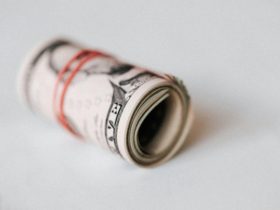Retail sales in the Czech Republic continued to decline in March, falling 8.1% year-on-year, according to data from the Czech Statistical Office (ČSÚ). This marks the 11th consecutive month of falling sales and acceleration of February’s decline of 6.8%. Sales also fell 0.7% every month. All categories of stores and online and mail-order businesses experienced a decrease in sales.
Non-food retail sales fell 9.7% year-on-year, while food sales also saw a notable decline, but by 1% less. However, sales of fuel increased by 2.4%. In month-on-month comparisons, non-food retail sales fell by 1.3% and food sales by 0.3%. Sales of energy increased by 0.6%.
Sales in stores specializing in household products were 18.4% lower than in March of the previous year. Stores selling computers and communication equipment saw sales drop by 10.4%, and those selling cosmetic and toiletry products experienced a decline of 6.7%. Clothing and footwear stores saw sales fell by 3.8%.
Stores selling cultural, sports, and recreation products experienced a 3.4% year-on-year decline in sales, and sales of pharmaceutical and medical products fell 1.3%. Online and mail-order stores saw sales decline by 4%, while sales in non-specialized stores with predominantly non-food products increased by 1.8%.
The decline in retail sales has been driven by rising inflation in the country, which is one of the highest in Europe. Despite a slight decrease in unemployment, people are concerned about their future income, leading them to prioritize spending on essentials rather than discretionary items. This has caused retailers to struggle, leading them to fight for customers by improving prices, which could help to lower inflation.
The decline in sales of non-food products reflects a general decrease in consumer confidence. Consumers are concerned about the current economic situation and their future financial stability. Therefore, they choose to save money by purchasing cheaper goods or taking advantage of promotional offers and discounts. The trend will likely continue until consumer confidence improves and the economy recovers.





